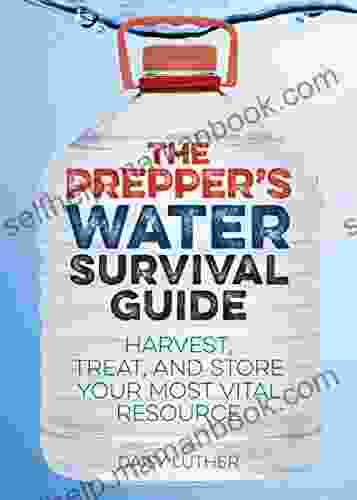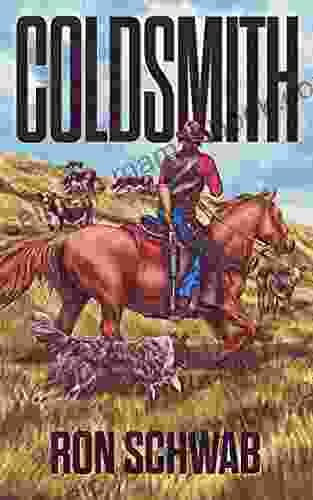The Prepper's Guide to Water Survival: Ultimate Knowledge Base for Emergency Situations

Water is the most important element for human survival. Without it, we can only live for a few days. In emergency situations, access to clean water can be scarce. That's why it's crucial to be prepared with the knowledge and skills to find, purify, and store water.
This comprehensive guide will provide you with everything you need to know about water survival in emergency situations. We'll cover topics such as:
4.6 out of 5
| Language | : | English |
| File size | : | 2923 KB |
| Text-to-Speech | : | Enabled |
| Screen Reader | : | Supported |
| Enhanced typesetting | : | Enabled |
| X-Ray | : | Enabled |
| Word Wise | : | Enabled |
| Print length | : | 224 pages |
| Lending | : | Enabled |
- Finding water sources
- Purifying water
- Storing water
- Conserving water
- Staying hydrated
Finding Water Sources
The first step to water survival is finding water sources. In an emergency situation, you may not be able to rely on your usual water supply. That's why it's important to know where to find other water sources.
Some common water sources include:
- Natural bodies of water, such as rivers, lakes, and streams
- Rainwater
- Groundwater
- Wells
- Springs
When choosing a water source, it's important to consider the following factors:
- Visibility: Clear water is generally safer to drink than cloudy water.
- Flow: Moving water is generally safer to drink than stagnant water.
- Location: Avoid water sources that are located near potential sources of contamination, such as sewage treatment plants or factories.
If you're unsure about the safety of a water source, it's always best to purify it before drinking it.
Purifying Water
Once you've found a water source, you need to purify it before drinking it. This will remove harmful bacteria and parasites that can make you sick.
There are a number of different ways to purify water. Some of the most common methods include:
- Boiling: Boiling water for at least 1 minute will kill most bacteria and parasites.
- Chlorination: Adding chlorine tablets or bleach to water will kill bacteria and parasites.
- Filtration: Water filters can remove bacteria, parasites, and other contaminants.
- Distillation: Distillation involves boiling water and then collecting the condensed steam. This process removes impurities from the water.
The best method for purifying water will depend on the specific situation. If you're in a hurry, boiling water is the quickest and easiest method. If you have more time, you may want to use a water filter or distiller to remove more impurities.
Storing Water
In an emergency situation, it's important to have a supply of clean water on hand. This water can be used for drinking, cooking, and sanitation.
The amount of water you need to store will depend on the number of people in your household and the length of time you expect to be without water. A good rule of thumb is to store at least 1 gallon of water per person per day.
There are a number of different ways to store water. Some of the most common methods include:
- Bottles: Water bottles are a convenient way to store water. They can be easily transported and stored in a variety of locations.
- Jugs: Water jugs are a good option for storing large quantities of water. They are more durable than bottles and can be easily refilled.
- Barrels: Water barrels are a good option for storing large quantities of water for long periods of time. They are more durable than bottles and jugs and can be sealed to prevent contamination.
Regardless of the method you choose, it's important to store your water in a cool, dark place. This will help to prevent the growth of bacteria and algae.
Conserving Water
In an emergency situation, it's important to conserve water. This will help to ensure that you have enough water to last. There are a number of different ways to conserve water, including:
- Take shorter showers
- Turn off the water when brushing your teeth or shaving
- Fix leaky faucets
- Water your lawn less frequently
- Reuse water
Reusing water is a great way to conserve water. For example, you can use the water from your washing machine to water your plants.
Staying Hydrated
In an emergency situation, it's important to stay hydrated. Dehydration can lead to a number of health problems, including fatigue, dizziness, and headaches.
There are a number of different ways to stay hydrated, including:
- Drink plenty of fluids
- Eat fruits and vegetables that are high in water content
- Avoid caffeine and alcohol
Drinking plenty of fluids is the best way to stay hydrated. Aim to drink at least 8 glasses of water per day. You can also drink other fluids, such as juice, tea, or soup.
Eating fruits and vegetables that are high in water content is another good way to stay hydrated. Some good options include watermelon, strawberries, blueberries, and cucumbers.
Caffeine and alcohol can dehydrate you, so it's best to avoid them in an emergency situation.
Water is essential for human survival. In an emergency situation, it's important to be prepared to find, purify, store, conserve, and stay hydrated. By following the tips in this guide, you can ensure that you have the knowledge and skills to survive any emergency situation.
4.6 out of 5
| Language | : | English |
| File size | : | 2923 KB |
| Text-to-Speech | : | Enabled |
| Screen Reader | : | Supported |
| Enhanced typesetting | : | Enabled |
| X-Ray | : | Enabled |
| Word Wise | : | Enabled |
| Print length | : | 224 pages |
| Lending | : | Enabled |
Do you want to contribute by writing guest posts on this blog?
Please contact us and send us a resume of previous articles that you have written.
 Top Book
Top Book Novel
Novel Fiction
Fiction Nonfiction
Nonfiction Literature
Literature Paperback
Paperback Hardcover
Hardcover E-book
E-book Audiobook
Audiobook Bestseller
Bestseller Classic
Classic Mystery
Mystery Thriller
Thriller Romance
Romance Fantasy
Fantasy Science Fiction
Science Fiction Biography
Biography Memoir
Memoir Autobiography
Autobiography Poetry
Poetry Drama
Drama Historical Fiction
Historical Fiction Self-help
Self-help Young Adult
Young Adult Childrens Books
Childrens Books Graphic Novel
Graphic Novel Anthology
Anthology Series
Series Encyclopedia
Encyclopedia Reference
Reference Guidebook
Guidebook Textbook
Textbook Workbook
Workbook Journal
Journal Diary
Diary Manuscript
Manuscript Folio
Folio Pulp Fiction
Pulp Fiction Short Stories
Short Stories Fairy Tales
Fairy Tales Fables
Fables Mythology
Mythology Philosophy
Philosophy Religion
Religion Spirituality
Spirituality Essays
Essays Critique
Critique Commentary
Commentary Glossary
Glossary Bibliography
Bibliography Index
Index Table of Contents
Table of Contents Preface
Preface Introduction
Introduction Foreword
Foreword Afterword
Afterword Appendices
Appendices Annotations
Annotations Footnotes
Footnotes Epilogue
Epilogue Prologue
Prologue Ann Nocenti
Ann Nocenti Mario Escobar
Mario Escobar Timothy Andrews Sayle
Timothy Andrews Sayle Julie Evans
Julie Evans Emmaleigh Loader
Emmaleigh Loader Naomi Shihab Nye
Naomi Shihab Nye Lex Ronin
Lex Ronin Yogesh Chandra
Yogesh Chandra Kit Bladegrave
Kit Bladegrave Sandy Kilpin Miller
Sandy Kilpin Miller Robert J Crane
Robert J Crane Silvia Casini
Silvia Casini Micaiah Johnson
Micaiah Johnson Susanne Hope
Susanne Hope Lewis Carroll
Lewis Carroll Jessie Kelley
Jessie Kelley Eleanor Drago Severson
Eleanor Drago Severson Jim Van Houten
Jim Van Houten M L Martin
M L Martin Ava Lennart
Ava Lennart
Light bulbAdvertise smarter! Our strategic ad space ensures maximum exposure. Reserve your spot today!
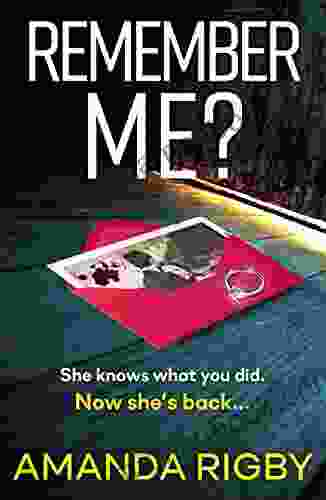
 Preston SimmonsAn Addictive Psychological Thriller That You Won't Be Able to Put Down In...
Preston SimmonsAn Addictive Psychological Thriller That You Won't Be Able to Put Down In... Ervin BellFollow ·17.8k
Ervin BellFollow ·17.8k Finn CoxFollow ·9.7k
Finn CoxFollow ·9.7k Hank MitchellFollow ·16.4k
Hank MitchellFollow ·16.4k Isaias BlairFollow ·7.9k
Isaias BlairFollow ·7.9k Darren BlairFollow ·19.4k
Darren BlairFollow ·19.4k Doug PriceFollow ·18k
Doug PriceFollow ·18k Jayden CoxFollow ·16.5k
Jayden CoxFollow ·16.5k Milan KunderaFollow ·18.6k
Milan KunderaFollow ·18.6k
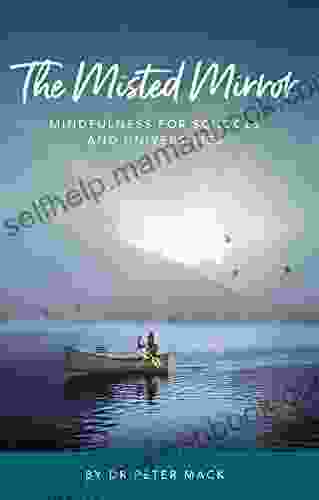
 Boris Pasternak
Boris PasternakThe Misted Mirror: Mindfulness for Schools and...
What is The Misted...
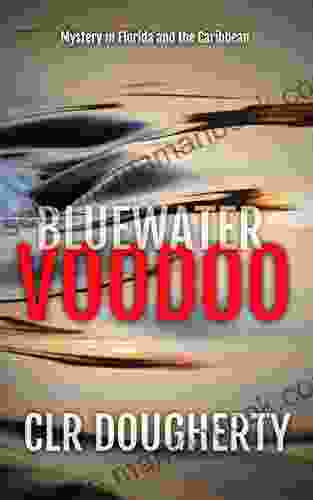
 Holden Bell
Holden BellEmbark on Thrilling Adventures in the Uncharted Depths of...
Unveiling the Enchanting...

 Seth Hayes
Seth HayesDelphi Complete Works of Lucan: Illustrated Delphi...
This meticulously edited...

 Jackson Hayes
Jackson HayesThe Enigmatic Cat Burglar: Unraveling the Intriguing...
In the annals of crime, the name Bernie...
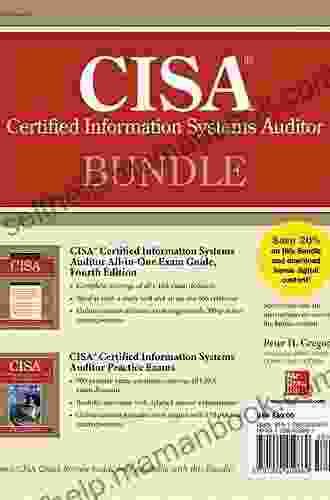
 Quentin Powell
Quentin PowellAligned With The Cisa Review Manual 2024 To Help You...
The CISA Review Manual 2024 is the most...

 Austin Ford
Austin FordUnlocking Revenue Potential: A Comprehensive Business...
In today's digital...
4.6 out of 5
| Language | : | English |
| File size | : | 2923 KB |
| Text-to-Speech | : | Enabled |
| Screen Reader | : | Supported |
| Enhanced typesetting | : | Enabled |
| X-Ray | : | Enabled |
| Word Wise | : | Enabled |
| Print length | : | 224 pages |
| Lending | : | Enabled |


